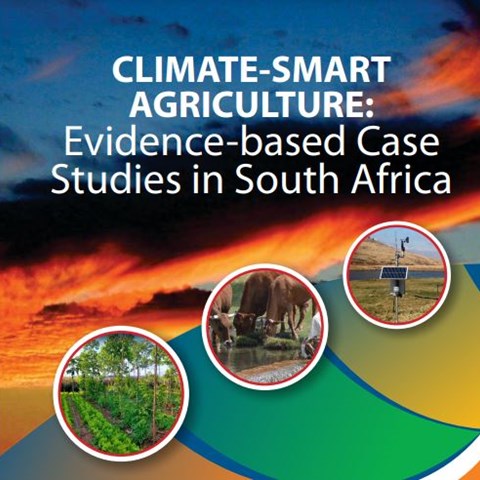AgriFoSe2030’s sorghum project contributes to climate smart agriculture

Challenge 2 leader Madelene Ostwald and project leader Nothando Dunjana have recently published a chapter in the Climate-Smart Agriculture: Evidence-based Case Studies in South Africa.
The chapter presents evidence-based research and case studies that have been conducted in South Africa to evaluate the effectiveness, limitations and challenges of different Climate Smart Agriculture (CSA) practices applicable to various agricultural commodities.In turn, the provision of comprehensive lessons learned from the undertaken climate-smart initiatives is aiming to contribute towards the development of informed and effective policies and interventions for resilient and sustainable agriculture and rural development in this region.
Summary of the chapter
Agricultural production plays a strategic role in ensuring food security, income, and employment for rural households across developing countries. Smallholder farming systems are complex, and efforts to transform them are undermined by climate change induced shocks as well as long-term changes. The project team employed a multi stakeholder approach to develop an inclusive sorghum value chain for effective transition towards more diversified, resilient and climate smart crop production in Nongoma and Clau Clau villages, in KwaZulu Natal and Mpumalanga provinces, South Africa. The coming on board of various stakeholders providing diverse support and services to the smallholder farming cooperatives helped to upscale sorghum production from the experimental trials, establish links with markets, train and capacitate the farmers in key aspects of project and business management. Consequently, the smallholder farmers are more equipped to adapt to climate change in terms of knowledge and skill sets, while livelihoods and food security are enhanced through crop diversification. They conclude that smallholder farmer support should go beyond basic research and extension, and multi-stakeholder and inclusive value chain development should be at the centre of efforts to build smallholder resilience to climate change.
Read the full publication here